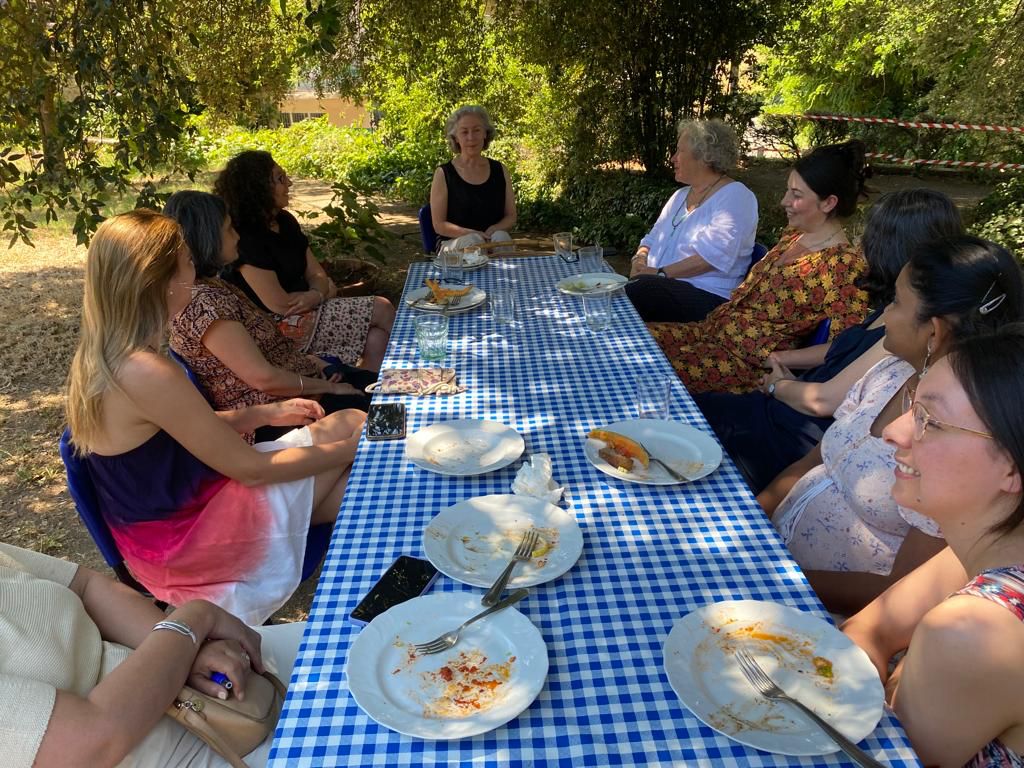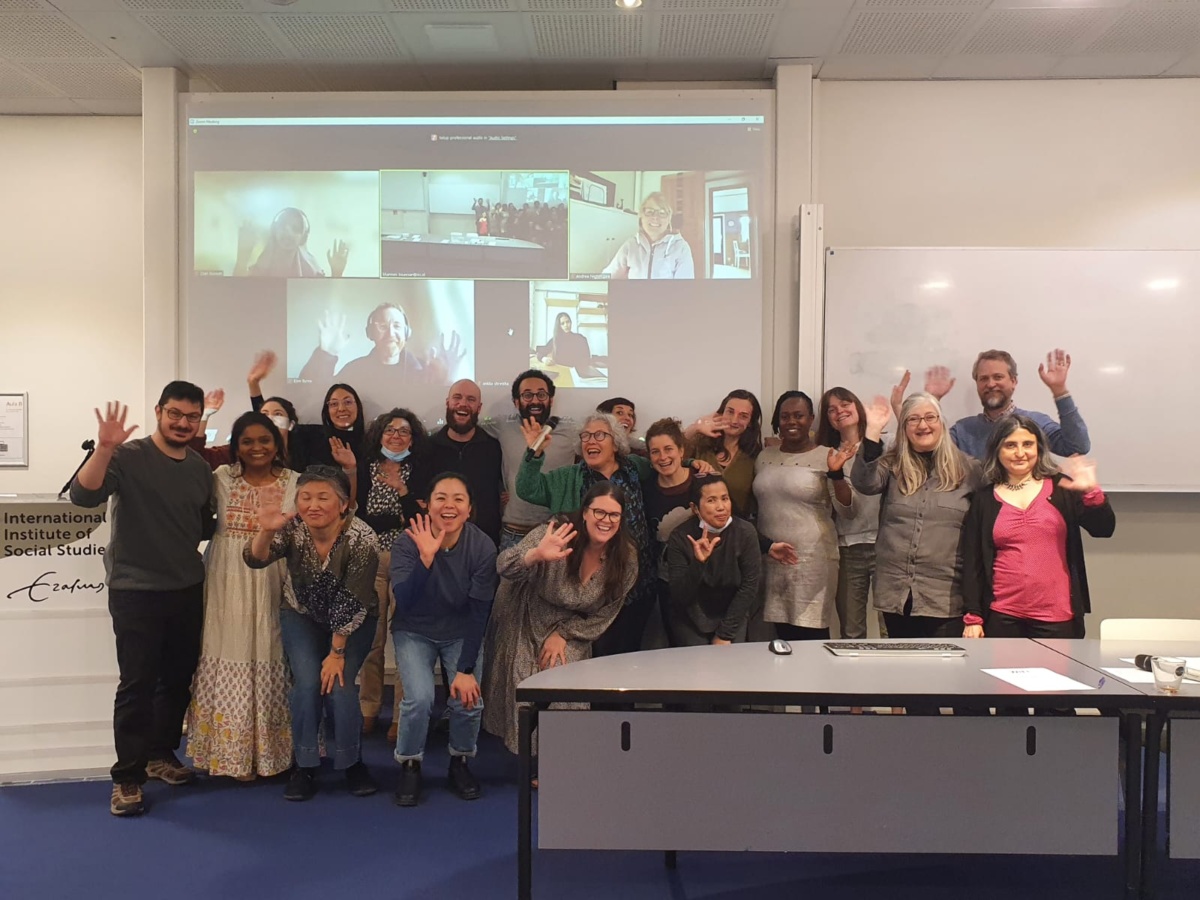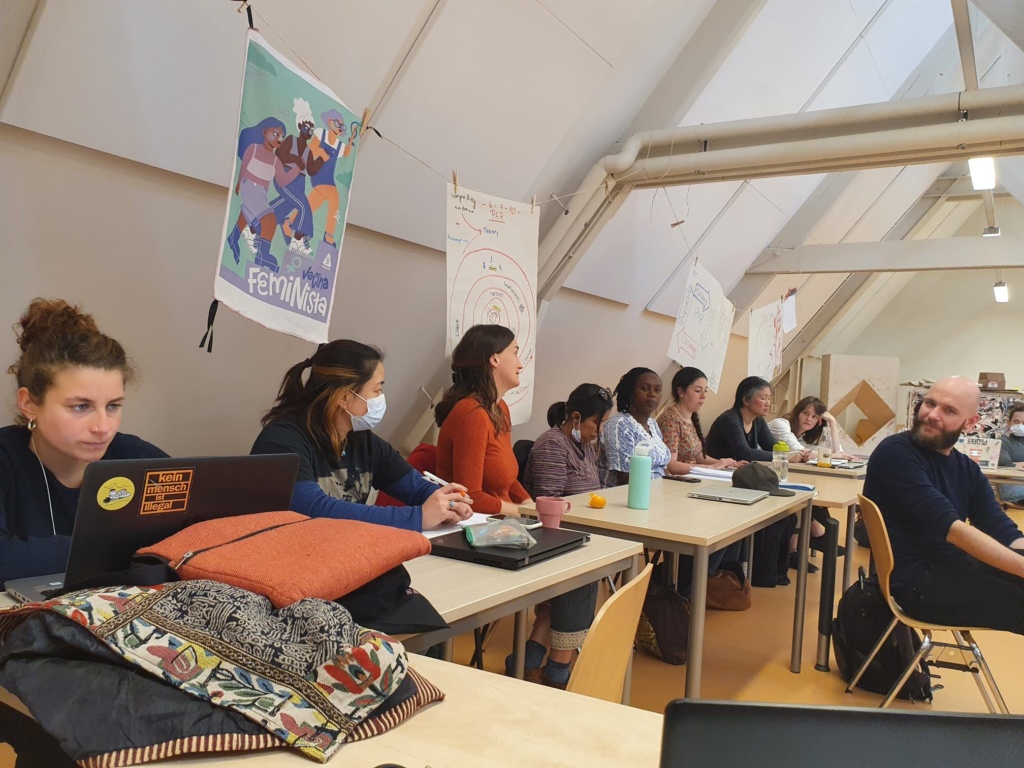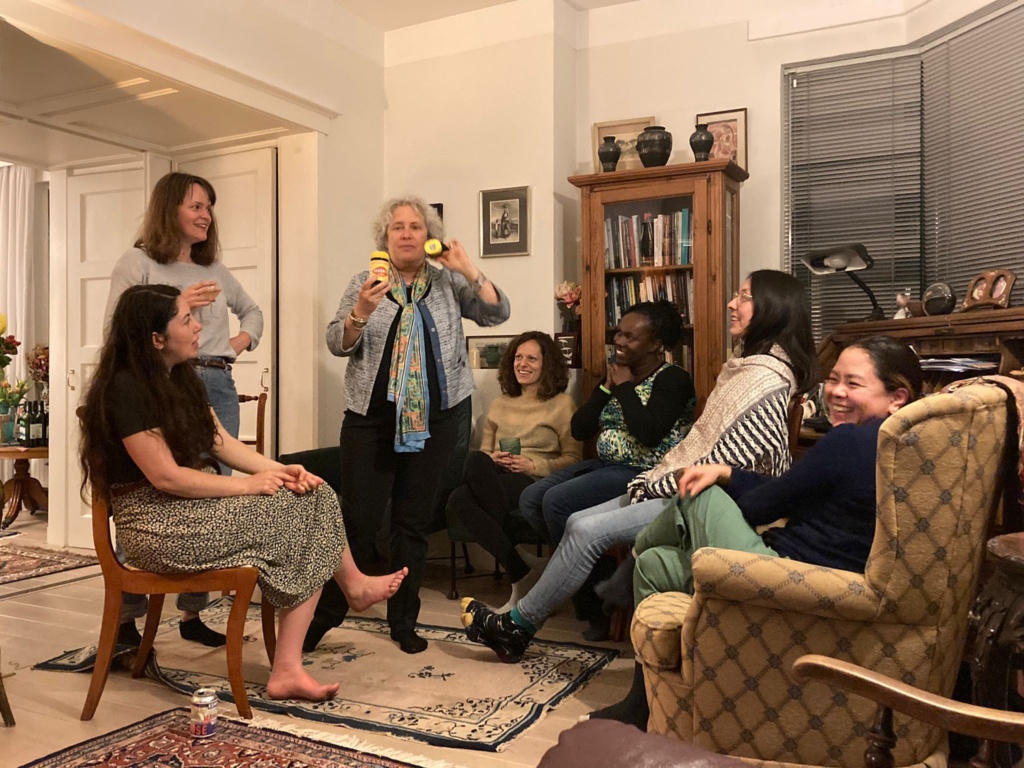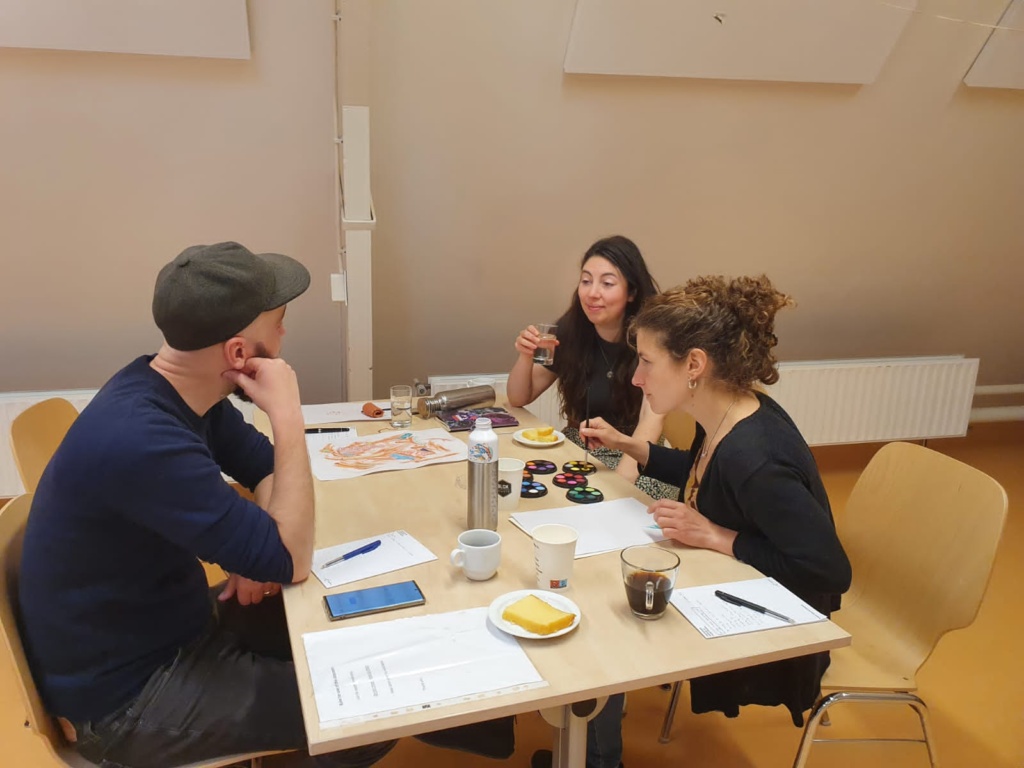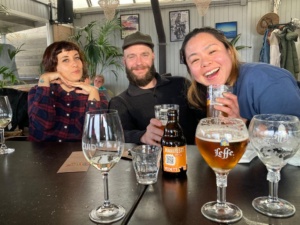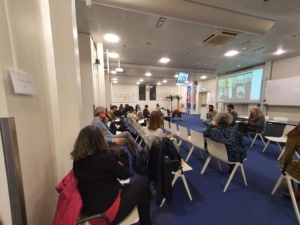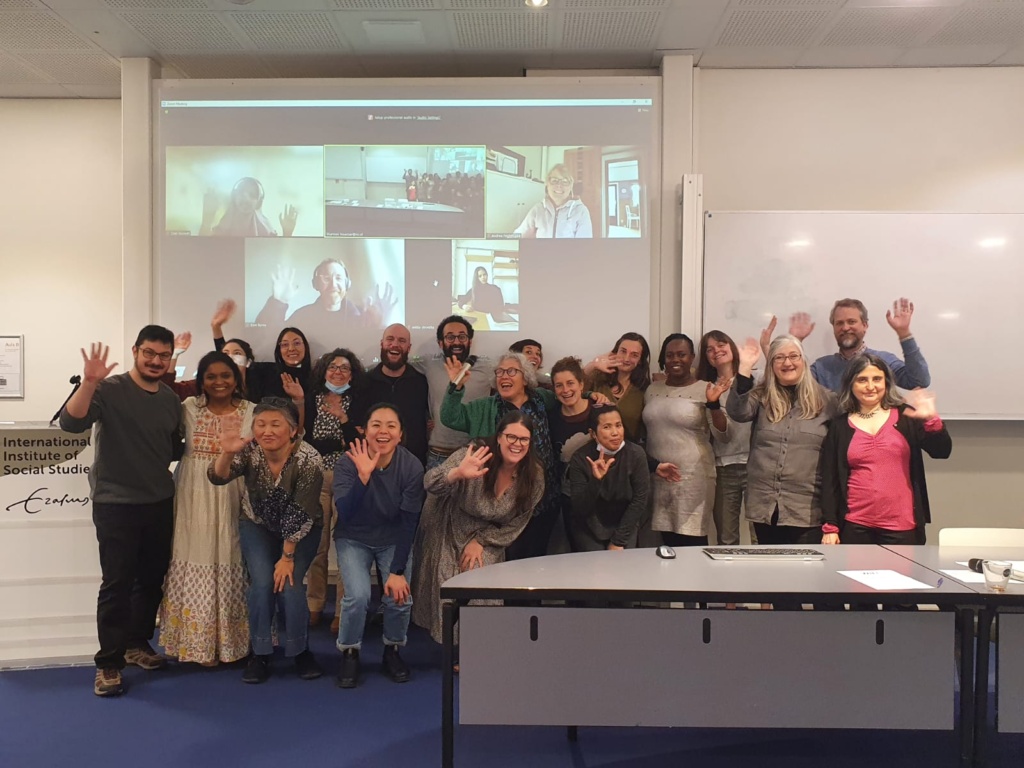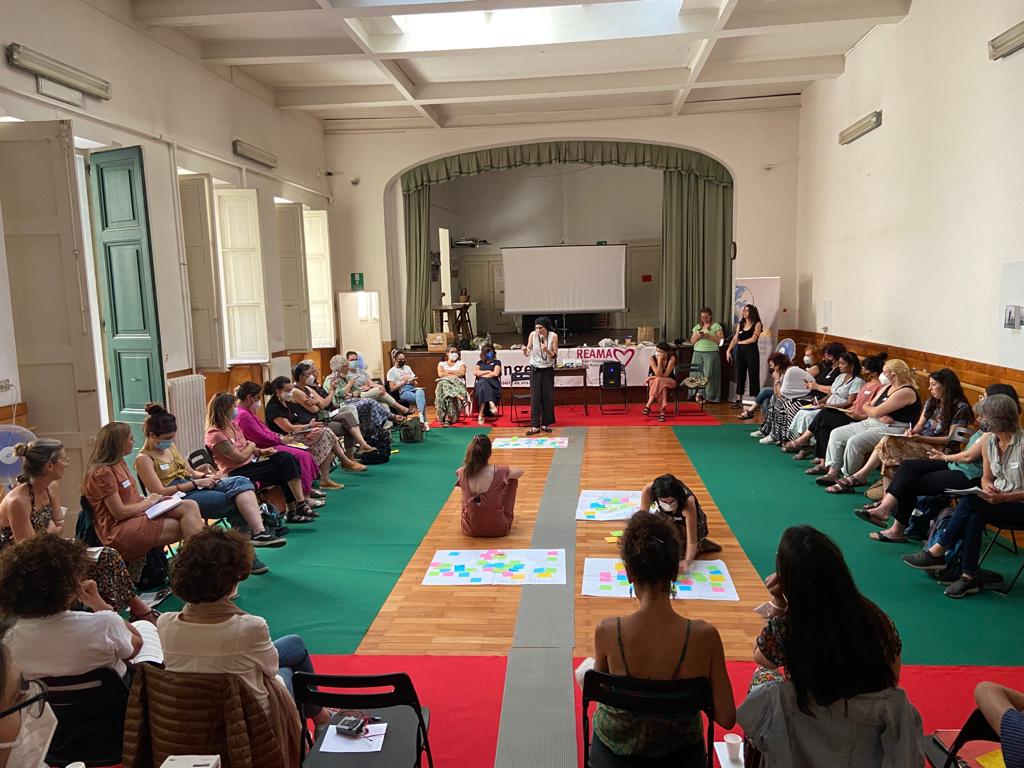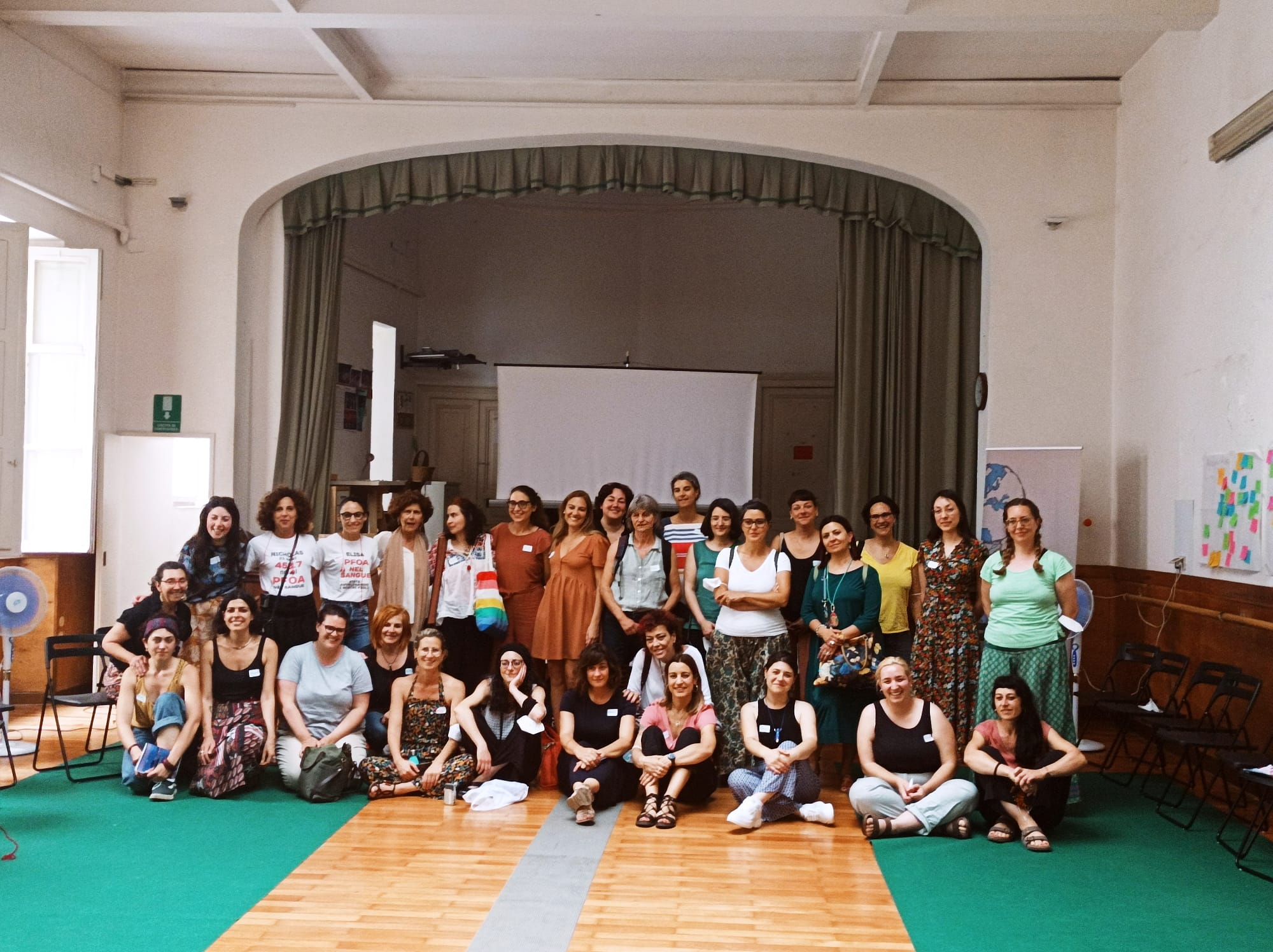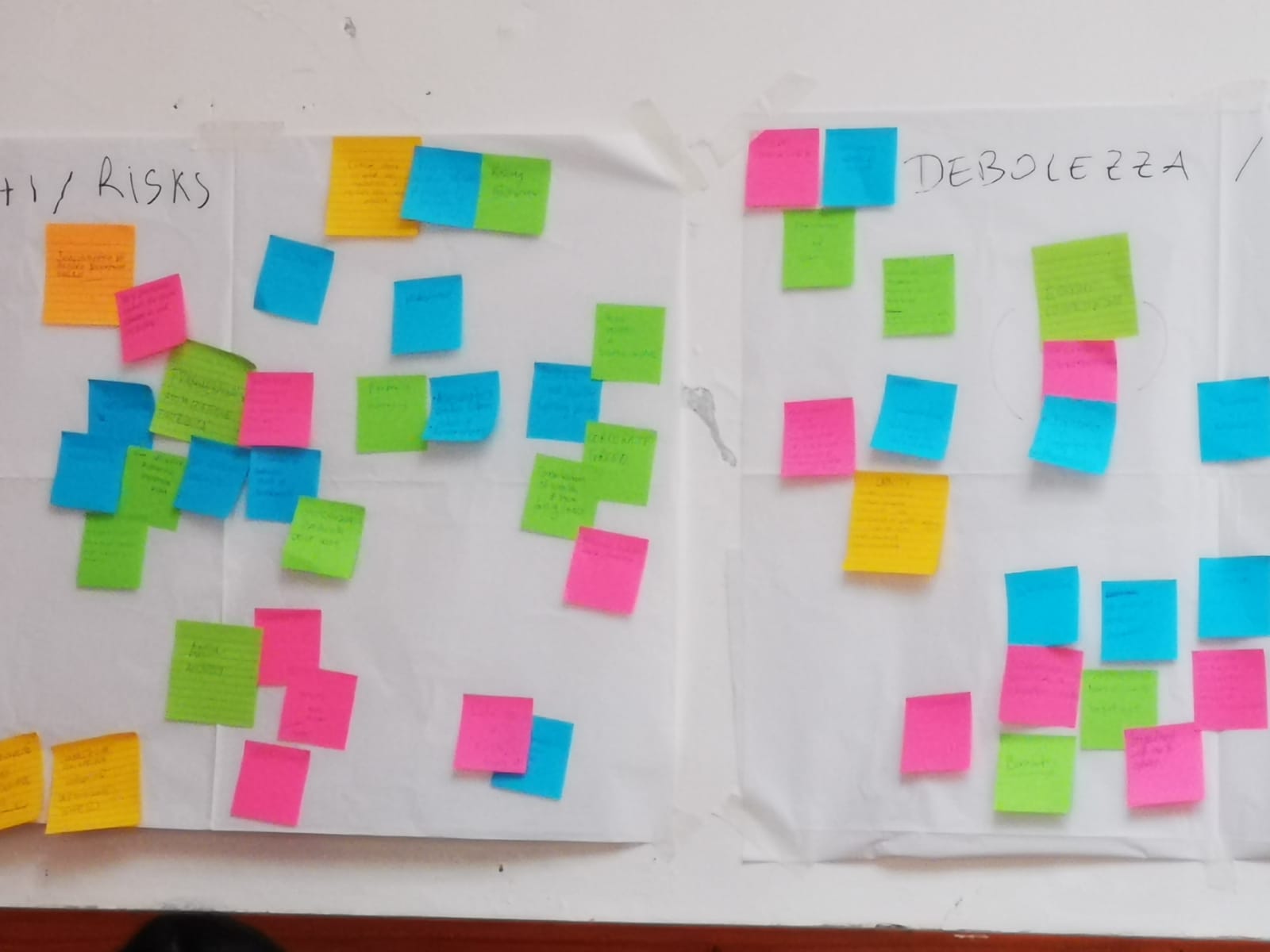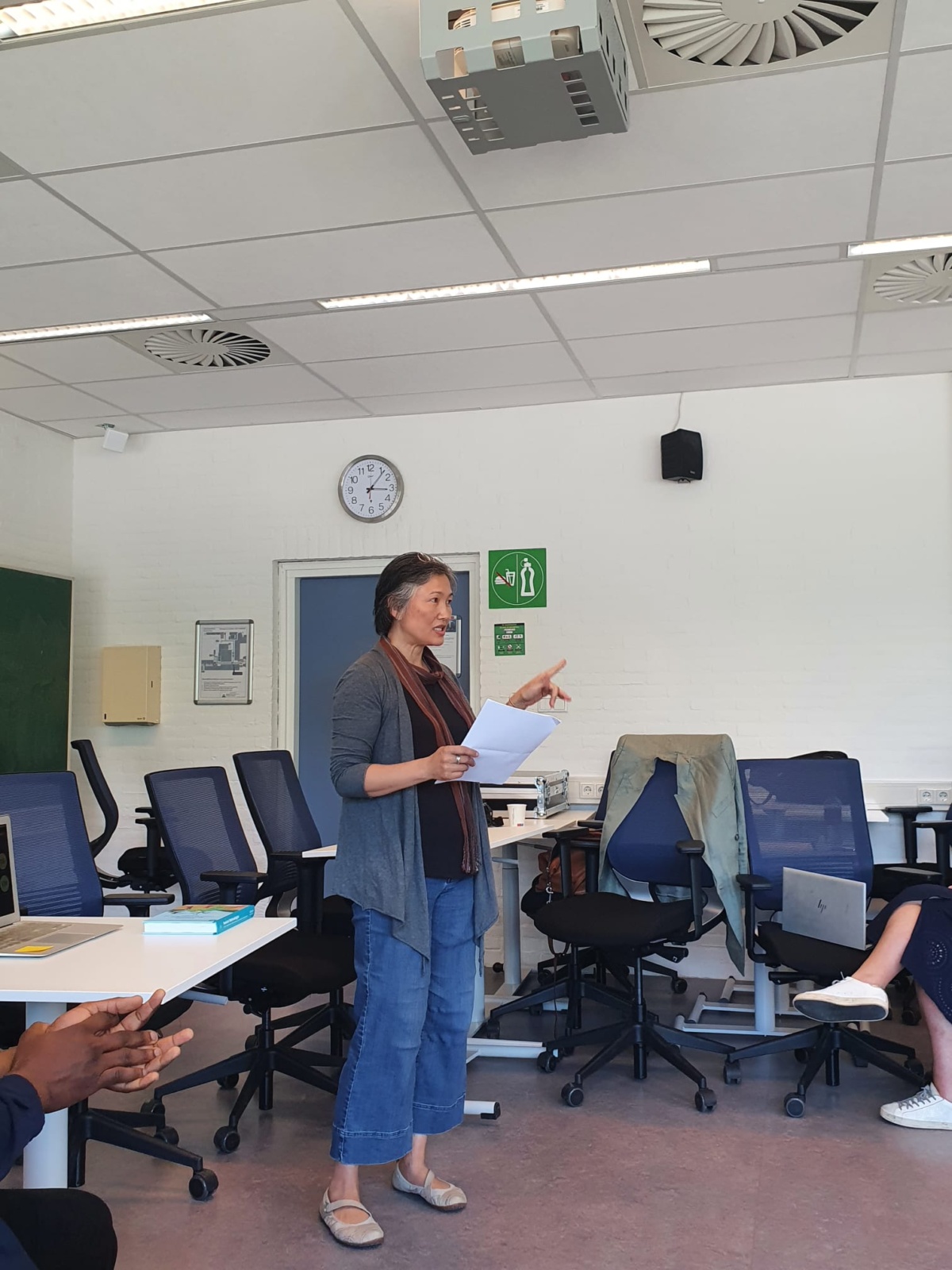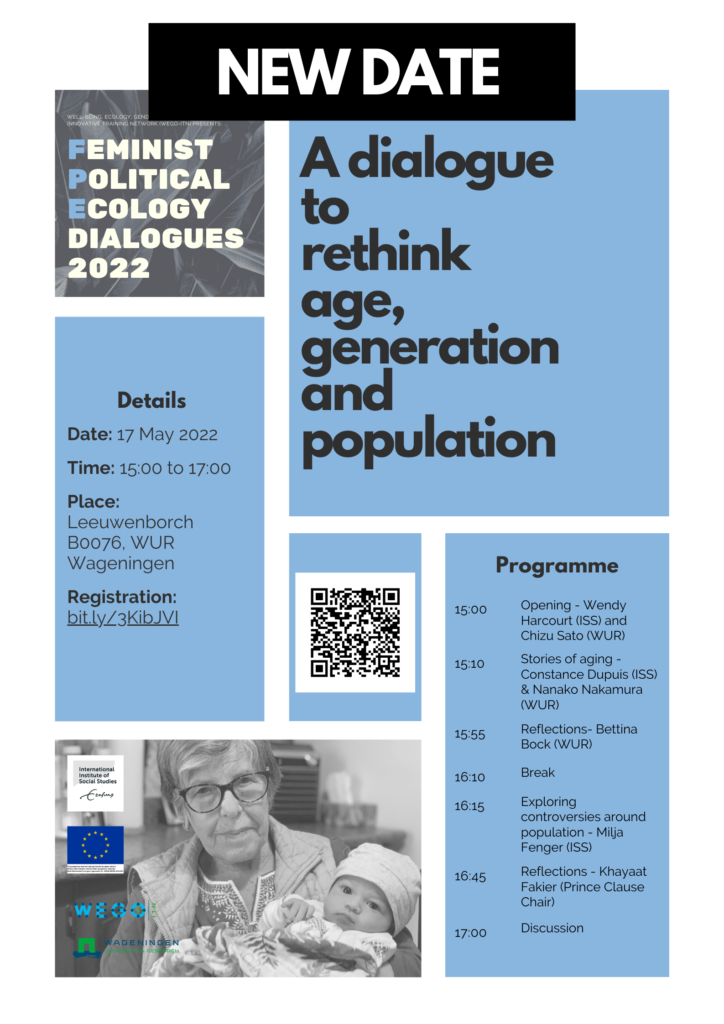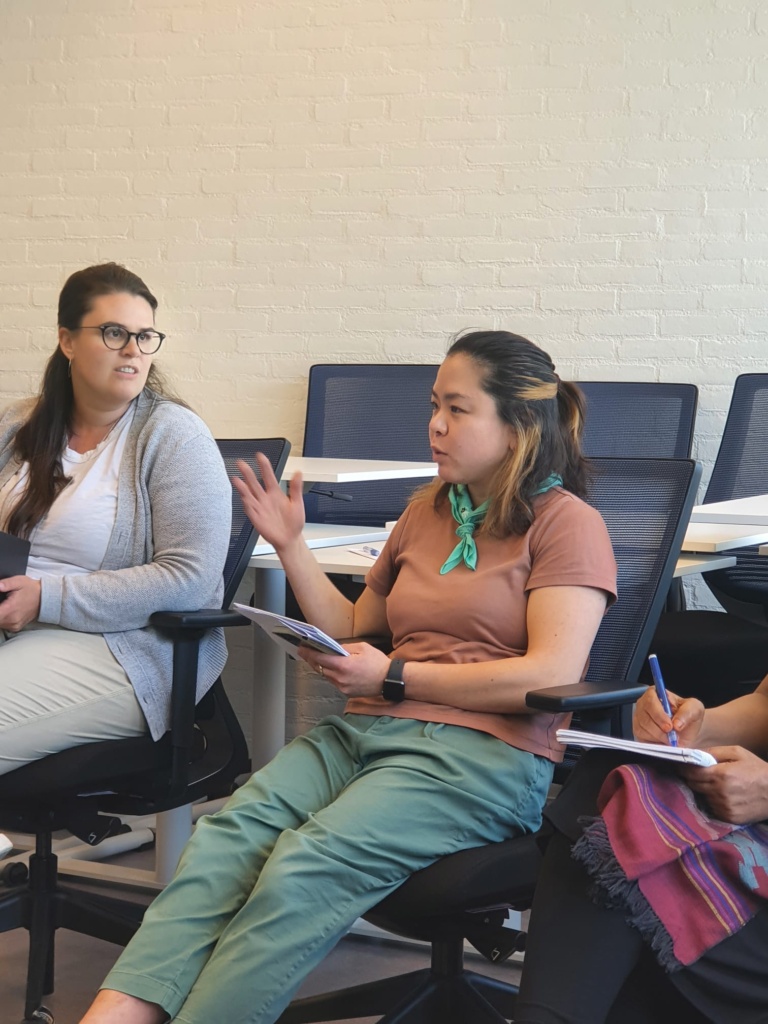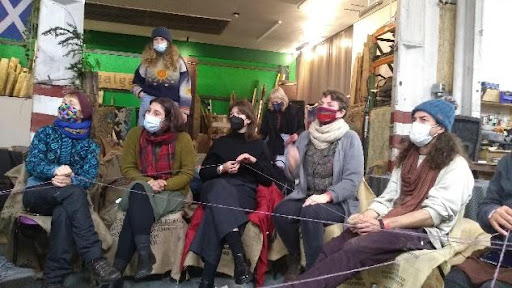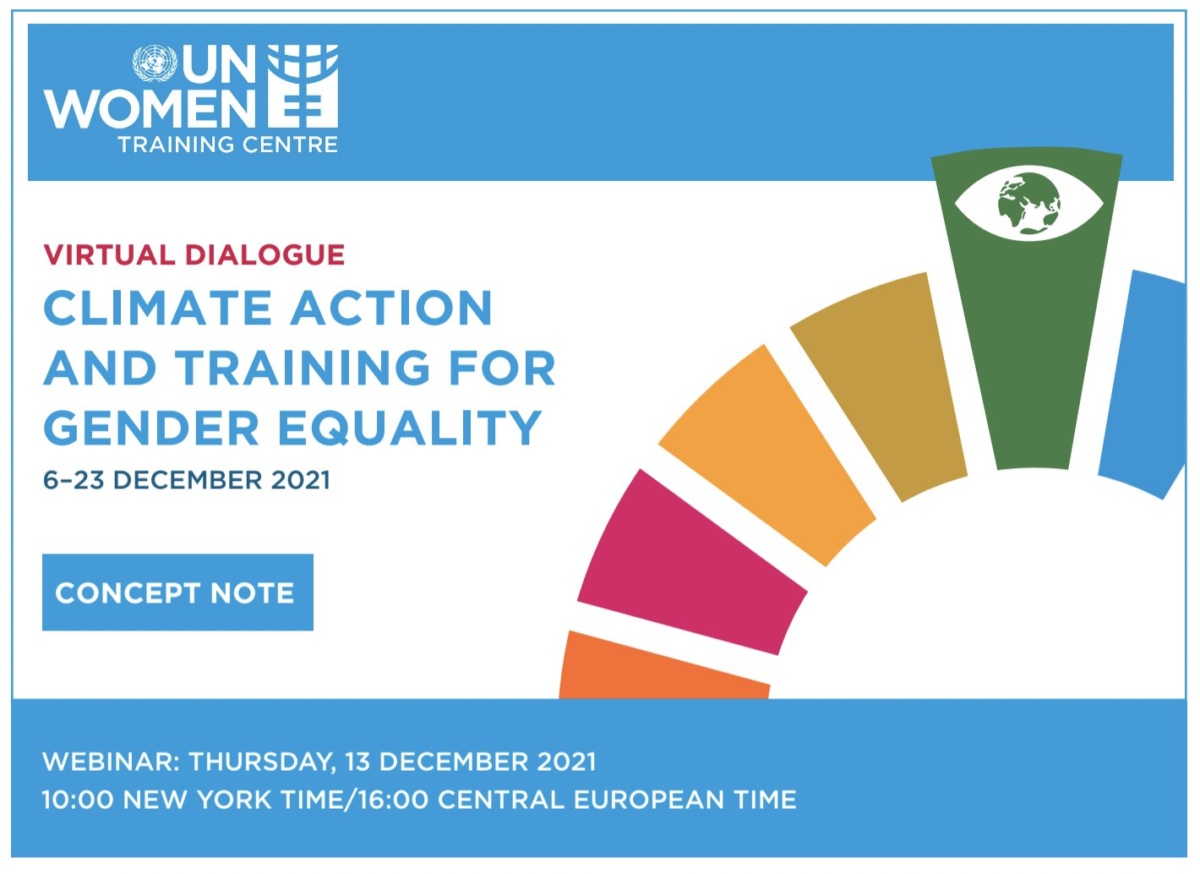The retreat in Palazzo Orzi, Grotte di Castro, attended by 17 people, had the important task of consolidating the work of WEGO-ITN 2018-22, as well as setting new directions for the network for the next two years. The focus was on how to continue to build the network as an inclusive, responsible, ethical and caring place for members and others to do activist research on feminist political ecology with communities.
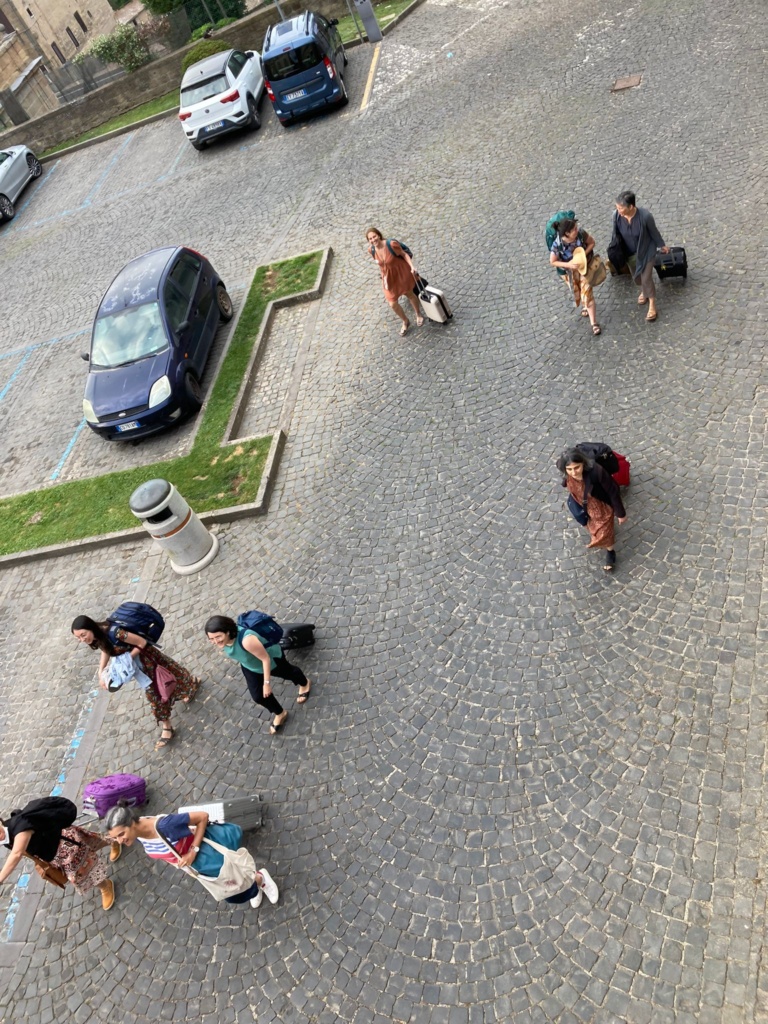
The retreat reviewed the results of WEGO-ITN’s 4 and half years and how to continue (taking into account economic resources) as the network consolidates and expands. This included what kind of activities, research, mentoring and partnering, the network will do in order to take up our responsibilities with communities to do follow up transformative research ‘otherwise’.
Our time in the Grotte was intentionally a slow meeting, with time to reflect, dream, discuss and debate in the beautiful Palazzo, home of the Orzi family. The meeting’s agenda evolved with the input of the people there building an agenda which helped us consider how we would work together and expand our outreach over the next two years. The conversation was guided by the coordinating team with lots of breaks, group work, and times to enjoy each other’s company as we chatted, prepared meals, cleaned and eat together.
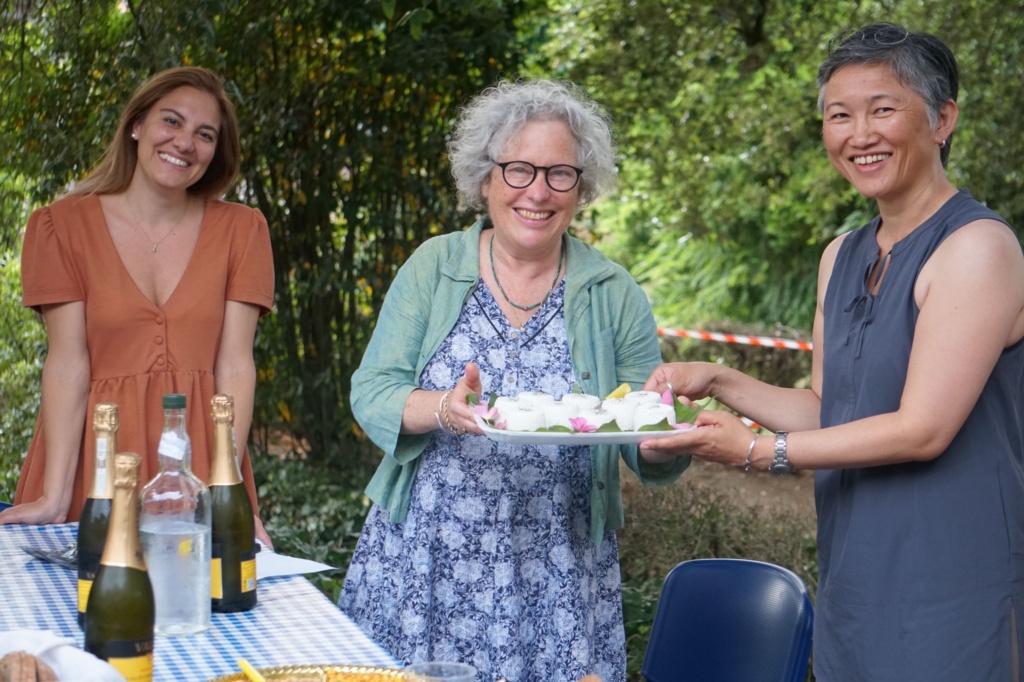
The setting is often what makes or breaks the success of a retreat. The Palazzo Orzi was a special place and Gaia and her parents were wonderful hosts. The Palazzo is a family home with many treasures from Etruscan vases, stately furniture and original paintings, and with frescoed ceilings. Despite the splendour, it was cosy and warm. While we were mostly tucked away in our workshop, discussing in the commodious sitting room, eating out in the garden under ancient trees, there were times to walk around the medieval town. We had some memorable meals in Grotte in a wonderful trattoria just up the road – ‘Aglio ,Olio and Pepperoncino.’ And we had one afternoon eating fish by the lake. In the day Gaia had provided local cheese and fruit. We found space for everyone to sleep in the Palazzo, whether in side-rooms, or cool ground rooms, or walk-through corridors. Wherever we found ourselves in the Palazzo, our hosts and their friendliness (and the food and wine!) made it a special and caring time.
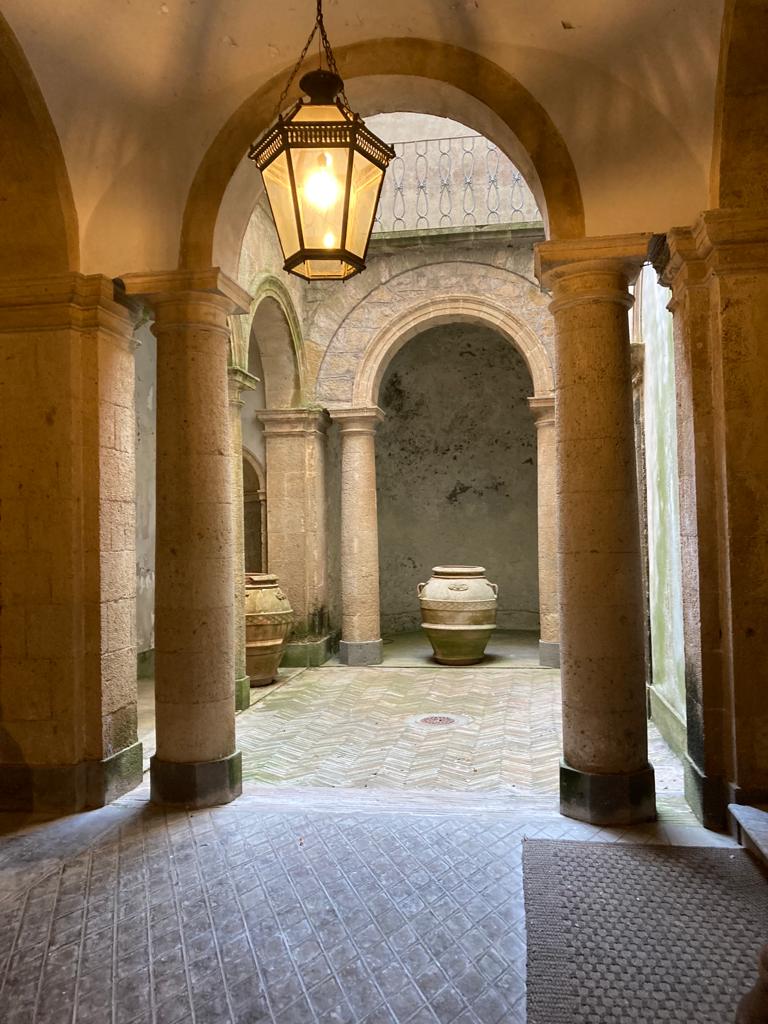
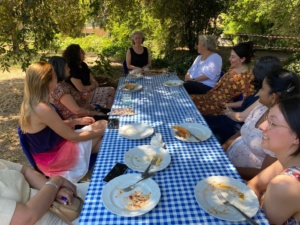
Our time was nourishing and productive. We agreed that the network would continue as an activist research network, that would continue to experiment and learn from what is happening around us as we navigate individual and institutional global uncertainty and disruption. WEGO-ITN has found quite some skills in navigating Covid with care and support for each other face to face and in virtual spaces inside and outside the academe. And we face increasingly difficult times – marked by the pandemic and climate crisis and increasing economic precarity and political violence including wars.
So, even if the EU funding is over, the network will continue as a feminist network with (thankfully for the coordinators in particular), less bureaucratic demands. The focus will continue to be Feminist Political Ecology doing activist research, networking ‘otherwise’ across the diversities of territories, institutions, languages, etc that mark us. It was such a privilege to be building our past, present and future relations in beautiful spaces such as the Palazzo and in sight of Lago di Bolsena, quietly reminding us about the presence of more-than-human others in our life worlds.
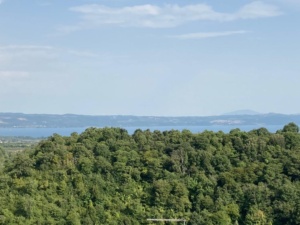
More FPE Dialogues to come!
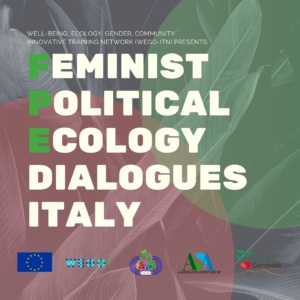
Officially WEGO-ITN has completed its work in June 2022 and the coordinating team are working on the final report. But the network will continue, as decided in both The Hague training in April the and June retreat. The Contours of Feminist Political Ecology is now being copyedited for publication in late 2022/ early 2023. The 10 articles for the special issues of Journal of Peasant Studies are being prepared for publication in 2023 along with a Routledge bool. From September 2022 onwards the network will recommence monthly networking meetings to continue to provide support for PhDs who are in the final stages of their PhD and to plan for a new network which will be called FEST* (feminist ecological solidarities for transformation). The Coordinating team along with other WEGO PhDs and mentors will continue to steer the network until summer 2024.
This new direction for WEGO will help to consolidate and expand the network through a series of FPE Dialogues which will feature activist research with communities engaged in intersectional intergenerational environment justice arenas. Inspired by Pangea A-Sud encounter FPE Dialogues will be about engaging at local and global levels activists and researchers particularly in the global south. The Fest* network, along with other local and global networks will bring together communities’ stories and strategies. Plans are for a return to Grotte di Castro in 2023 and in 2024 a celebratory reunion for all PhD students who have completed their PhD journey. Further suggestions include to apply to Bellagio for a FPE dialogue on the ‘Politics of Enough for Building Thriving Communities’, holding skills workshops on how to communicate and teach FPE as well as locally organized FPE Dialogues in South Africa, and Argentina covering topics such as resilience of rural women farmers and rethinking bodies, territories and land.
For those interested in organizing or joining FPE Dialogues and Fest* please contact: Wendy Harcourt (harcourt@iss.nl)


